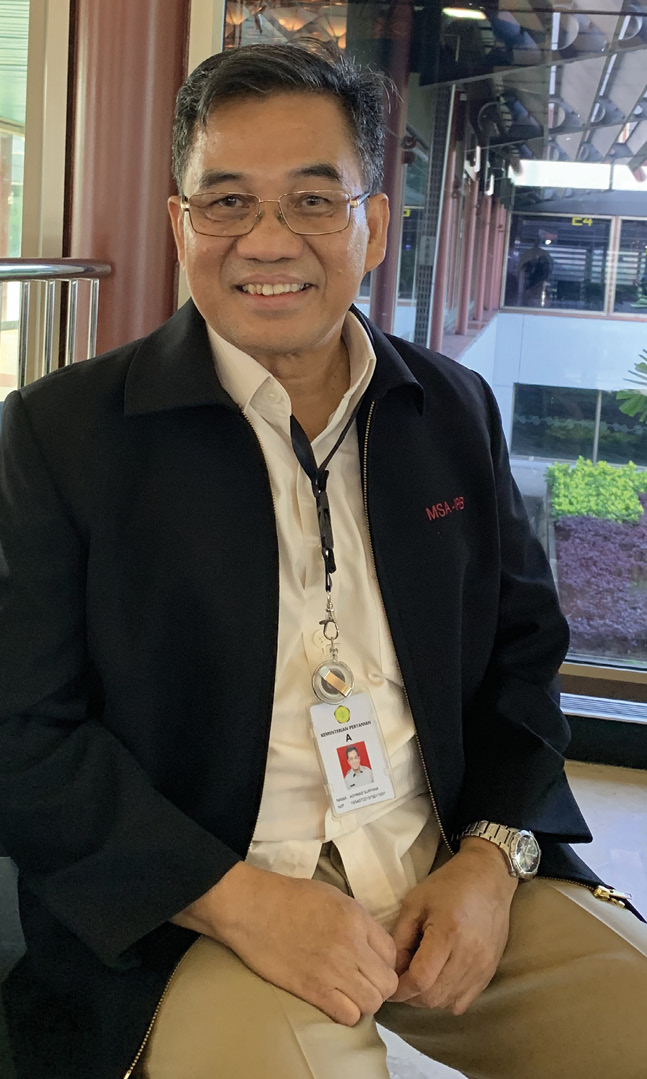- HomeHome
-
About ACIAR
- Our work
- Our people
-
Corporate information
- ACIAR Audit Committee
- Commission for International Agricultural Research
- Policy Advisory Council
- Agency reviews
- Executive remuneration disclosure
- Freedom of information (FOI)
- Gifts and benefits register
- Information publication scheme
- List of new agency files
- Contracts
- Legal services expenditure
- Privacy impact assessment register
- Commonwealth Child Safe Framework
- Benefits to Australia
- Careers
- 40 years of ACIAR
-
What we do
- Programs
- Cross-cutting areas
- Resources
- Where we work
-
Funding
- Research projects
- Fellowships
-
Scholarships
- John Allwright FellowshipScholarships to study in Australia for ACIAR partner country scientists to have Australian postgraduate qualifications
- ACIAR Pacific Agriculture Scholarships and Support and Climate Resilience Program
- Alumni Research Support Facility
- Publications
- News and Outreach
Date released
17 December 2021
For Professor Achmad Suryana, nothing has highlighted the importance of agricultural self-sufficiency and resiliency in Indonesia more than the COVID-19 pandemic.
Virus case numbers and deaths have been devastatingly high across the archipelago, and in 2020, Indonesia experienced its first full-year economic contraction in more than 20 years, with GDP falling 2%.
Agriculture wasn’t as hard hit by the pandemic as other sectors, says Professor Suryana, who sits on Australia’s Policy Advisory Council for International Agricultural Research (PAC) and is internationally recognised for his leadership of Indonesian agricultural research and development.
However, the sector wasn’t ready for the widespread fallout on its workforce and distribution chain. Producer prices fell, many farmers couldn’t get their produce to market and there was evidence of a fall in access to high-quality food.
‘We were not prepared for the pandemic. It was a shock,’ says Professor Suryana, speaking from Bogor where he is a Senior Researcher and a Research Professor in the Indonesian Center for Agriculture Socio Economic and Policy Studies and an adjunct professor at the Graduate School Bogor Agricultural University specialising in food and agribusiness policy.
Professor Suryana says ACIAR has a role to play in helping developing countries to prepare for such external shocks.
‘The systems were there [in Indonesia] but we need to further strengthen them so that we are prepared for the next shock like the one caused by the COVID-19 pandemic. We have to make sure this sector can continue to grow in any situation.’
That support could be anything from strengthening rural institutions such as farmers’ associations, to empowering farmers to practise smart farming using digital technology.
Professor Suryana has been involved in agriculture in one way or another all his life. As a child, he played in the rice fields in a remote town in West Java where his father was headmaster of the local primary school.
After he completed his final undergraduate exam at Bogor Agricultural University, he joined the Research Center for Agro-Economics in Indonesia’s Ministry of Agriculture. Several more civil service milestones followed, including his appointments in 1995 as Director of that same centre; as Director General (DG) of the Indonesian Agency for Agricultural Research and Development (IAARD) in 2004; and, later, as DG of Indonesia’s Food Security Agency.
Vision for ACIAR
This is his second stint as a PAC member, and he brings with him years of research, expertise and influence on food security policy. He has written or co-written more than 135 scientific articles and edited numerous books and seminar proceedings about agricultural policy.
Indonesia has a large population – 273 million – but its agricultural sector is characterised by small-scale farming, with holdings, on average, each of less than half a hectare.
‘Because of that big population we can’t depend too heavily on imported food; we must be able to feed ourselves and so we must continuously increase food production through productivity increases, farming efficiency and product competitiveness, but all in a sustainable way,’ says Professor Suryana.
‘When we discuss things in PAC meetings, that is always in the back of my mind.’
He says technology can play an important role in food production efficiency and higher yields and incomes for small-scale farmers.
‘But we have to deliver that technology to farmers in a timely way,’ he says. ‘I believe ACIAR is in a good position to help developing countries do that.’
Professor Suryana says he would also like ACIAR to help its partner nations implement the hundreds of recommendations made by the United Nations (UN) Framework Convention on Climate Change, especially Sustainable Development Goal 2 No Hunger.
He cites the UN’s recommendation to reduce food loss and waste as an example. If Indonesia could substantially reduce its food waste it would not have to clear as much land for farming.
Demand for capacity building
Capacity building has always been part of Professor Suryana’s remit. At IAARD he oversaw a program that every year sent about 100 young researchers in-country and abroad to study for their Master’s and PhD degrees and for short-term training on specific topics.
‘We also implemented a program to accelerate dissemination of farming technologies from IAARD to farmers, assigning researchers to work in rural areas for several months at a time, working with the farmers to identify problems and helping solve them.’
The support from organisations such as the World Bank and ACIAR has been invaluable, he says. For example, to date Indonesia has benefitted from 87 John Allwright Fellowships, 29 John Dillon Fellowships and 4 Meryl Williams Fellowships.
He says he hopes ACIAR will continue with in-country research, and he wants to see more multi-country research projects so that developing countries can learn from each other’s experience and expertise.
‘Australia and ACIAR have played an important role in this area, increasing the capacity of agricultural research in developing nations. Some of the young Indonesian researchers who have gone through these programs now hold important positions in our agricultural sector.’



